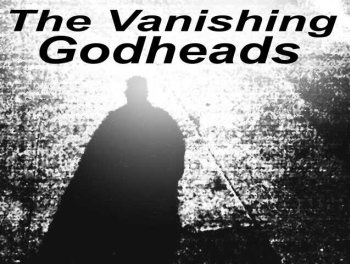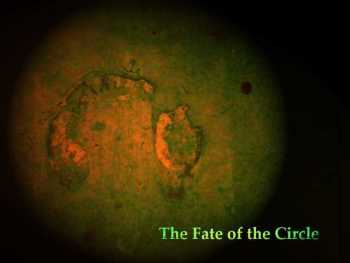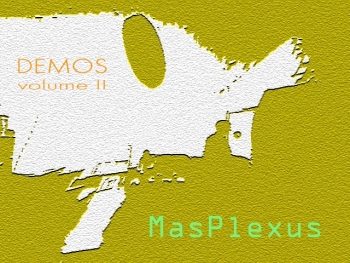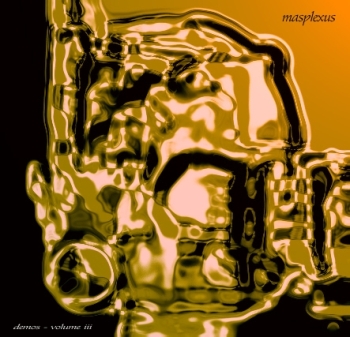As I've written in the past, any analysis of music from a psychological perspective should be taken with a grain of salt, at least in my opinion. When I do write about music, it is ultimately to communicate psychological insights, more than to illuminate new perspectives on music. I never compose music while thinking about the psychological processes at work, and yet my songs and their arrangements naturally end up portraying inherent patterns of psychological movement from which one can attain insight into the way consciousness moves over time.
Much of my music naturally progresses towards a place of meditative peace and simplicity, the Abstract, but such a domain must be earned. It is a destination that is difficult to reach. I am not speaking of one's usual state of calm and contentment, but that deeper state of serenity that can be attributed to higher states of mind.
Music works on consciousness through psychological resonance. If one does not jive with the music, one is effectively refusing to actualize the potential journey which the music offers.
There are two factors that determine resonance. The first can be called "psychological proximity". It is easier to attain a state of bliss if one is already in a state of joy, as opposed to in a state of anger or frustration. Similarly, if one hears music that is playful and light while one feels heavy and morose, the music is less likely to resonate with the listener.
The second factor can be called "inventory of experience". If one is currently in a state that is heavy and morose but is usually playful and lighthearted, then light and playful music is more likely to quickly snap one out of the heavy mood. This is an over simplification, of course. Typically, my songs try to evoke moods that are very unique in character and therefore most people do not find an entry point with which they can identify.
With respect to attaining a deep sense of serenity, if one has just gotten off from work, for example, after a hectic day dealing with aggressive clients and upper management, then soft, simple, abstract music is typically not going to resonate with the listener; in some ways the sense of calm that could be attained can be termed hypocritical, or repressive of the underlying tension that has not been resolved or shaken out from its roots. There must first be an entry point that makes the listener jive with the music and from there one is led to gradually travel towards the realm of inner peace, by going through the rounds that unfold or unweave the knots which have developed.
Even if one doesn't live a busy and fast-paced life, one's conscious mind typically does its best to clutter itself with all kinds of thoughts, desires, and concerns. That's what meditation is for, to empty oneself out, but the proper music can work as a natural aid.
The path of psychological travel from point A to point B is rarely, if ever, a straight line. The path to a meditative serenity can be especially complicated. One typically experiences much oscillation through various moods and perspectives before a higher, more restful state of mind is reached, and to trace the path one took involves awareness of at times highly subtle internal processes at work.
"Equinox" is a collection of my songs that serves as a sonic essay or a musical portrayal of the wide array of psychological movement one experiences before being released into a sea of calm. The progression towards the inevitable serenity is a natural one, which cannot be explained in words but should be experienced directly through the music.
Click here to listen to "Equinox".
If the reader would rather just sample "Equinox" to get a feel of what I'm talking about, the following song represents the turning point between the turbulence and the calm. It is a rather extreme example of what I've been talking about, because it begins in a rather aggressive and dark manner. But, this only serves to illuminate one out of many natural psychological progressions from a state of turmoil to a state of inner peace. It can be argued that perhaps the greatest purpose of music is to sublimate the lower states of mind into higher ones.
Another aspect of reaching a calm, meditative state through music is that the entry point used, that with which the listener can resonate, should nevertheless invite the intellect to a quietude. The intellect is typically, and naturally, on overdrive. Music that is catchy serves to keep the intellect going. A meditative calm is thus difficult to attain.
While "The Reversal" begins busy and interesting, and emotional, it is deliberately un-catchy and thus the initial busy-ness does not "bind" the listener's intellect. Secondly, the complicated sound textures that directly precede the period of calm can serve to massage one's intellect to a quietude by being overly complex to follow consciously, just as water trickling through a stream in "hyper-"stereo is also calming to the nerves because there are so many drops of water emerging from many places all at once.
In Equinox, "The Reversal" then leads to songs that are more abstract in nature, having finally arrived at a place of serenity.
























2 comments:
I just wanted to say hello, I've checked out your music again and really dig the vibe that I get. It does take you to a hidden place deep to the core. I look forward to more work as it allows me to look further into self and what we call reality.
Thanks for stopping by. A CD of mine will be released on a net label called Just Not Normal on the 7th of August. "The Vanishing Godheads of Xioulan" at http://justnotnormal.wordpress.com
Post a Comment